Activists battle multiple kinds of discrimination to secure right to citizenship in Myanmar
Date:
Author: Jemma Galvin
Yangon, Myanmar — Rights activists in Myanmar say they are fighting all kinds of discrimination as they boost coordinated efforts to ensure that women can acquire citizenship and the identity documents they need for protection and access to basic services.
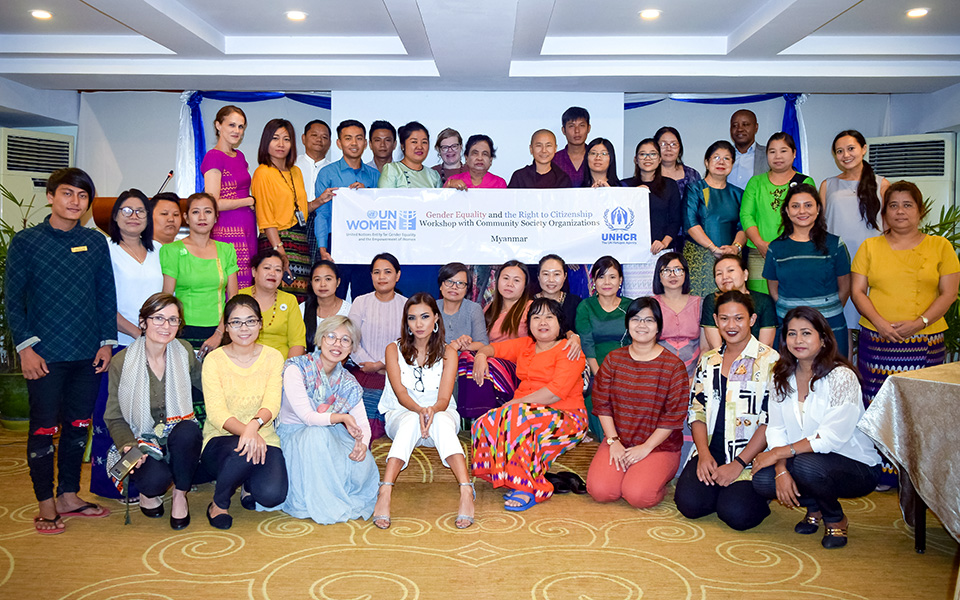
Legal recognition and identity for all groups is key to inclusive democracy, said UN Women Myanmar’s acting Head of Office, Smriti Aryal.
She said joint action is needed to ensure that Myanmar’s reforms on identity rights comply with international norms and its commitments as a signatory to United Nations Conventions on the rights of women, children and people with disabilities. These conventions contain obligations on gender equality, the right to birth registration, and equal nationality rights for all people, Aryal said.
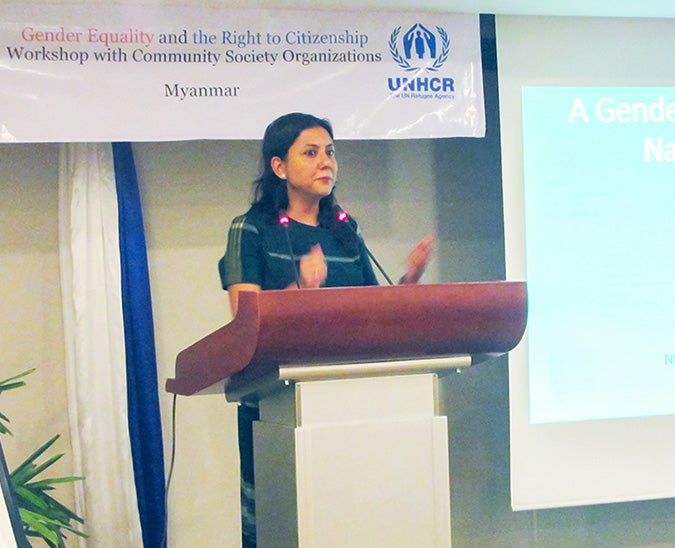
“The recognition of and access to legal identity rights, including access to civil documents and citizenship, is critical to enjoying all other rights,” she said.
Such other rights include those concerning property and land tenure, education, employment, migration, health services, housing and protection.
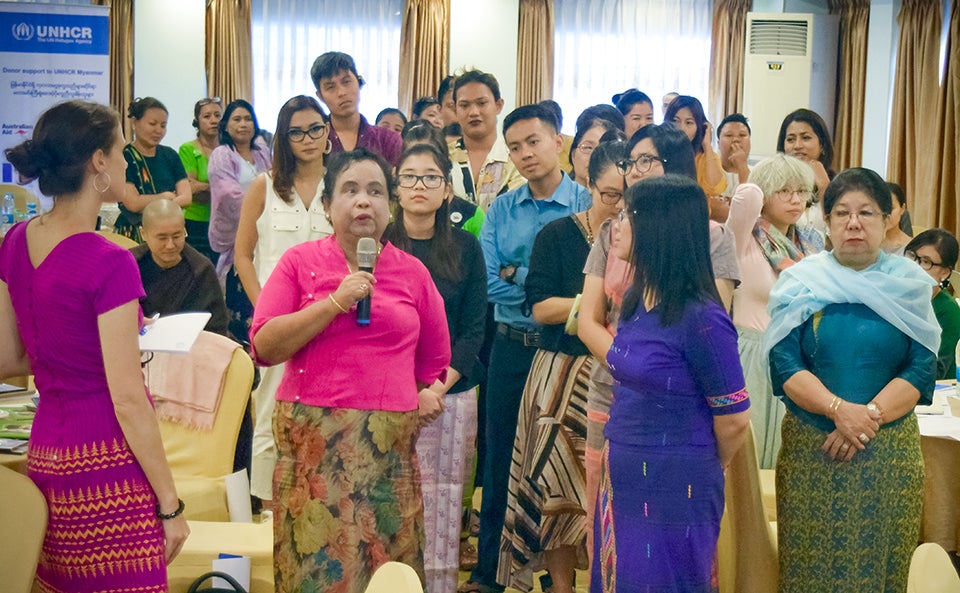
Aryal and other experts spoke at a September 2018 workshop in Yangon that UN Women and United Nations Refugee Agency (UNHCR) convened to strengthen joint action on nationality rights. Participants included women’s activists from across Myanmar, representing diverse states, ethnicities and religions. There were transgender persons, sex workers, women living with HIV, women with disabilities, philanthropists, faith-based leaders and celebrities.
The workshop presented findings from “A Gender Analysis on the Right to a Nationality in Myanmar”, which was done by UNHCR and UN Women. The study highlighted the gender–based barriers women face, in particular in acquiring citizenship documents and conferring citizenship on their children, such as when a child is born a refugee, or the father is unknown or is not a citizen, or the marriage is interfaith or otherwise unauthorized.
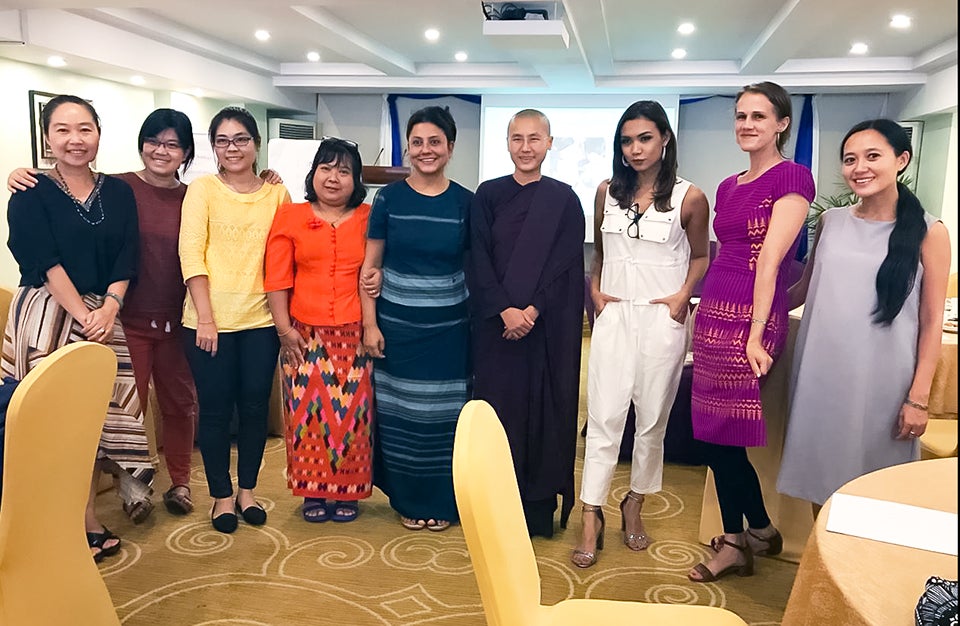
Myanmar has one of the world’s largest populations of stateless people, many of whom cannot access basic services and protection because they lack official identity documents. According to census data, almost a third of Myanmar’s population does not have an identity document. More than half of those without documents are women; the reasons for this include gender discrimination and a lack of legal and policy frameworks that fully comply with human rights standards.
The women’s groups at the September 2018 workshop agreed, as priority tasks, to:
- Do advocacy and awareness-raising campaigns targeting the government and authorities as well as women and others in the communities.
- Provide legal protection and services to women, including by putting them in contact with other non-governmental service providers and immigration offices.
- Provide targeted help to displaced women, ethnic minority women, transgender and lesbian women, female-headed households, widows, single women, older women, women with disabilities, female migrant workers, sex workers, survivors of human trafficking and of gender-based violence, women in interfaith marriages.
Aryal said that while all women in Myanmar are affected, some face additional barriers and discrimination in acquiring and transferring citizenship: the stateless and displaced, ethnic and religious minorities, female-headed households, rural women, sex workers, lesbian couples, and transgender people. Transgender individuals, for example, lack legal recognition, and are often forced to identify themselves by their biological sex and sometimes even asked to remove their clothing at immigration offices.
Myat Thiri Aung, the Information, Counselling and Legal Assistance Coordinator at the Norwegian Refugee Council, said that women displaced in conflict-affected areas often cannot access authorities because of security concerns, the high number of checkpoints, and harassment by their communities if they move about without a man accompanying them.
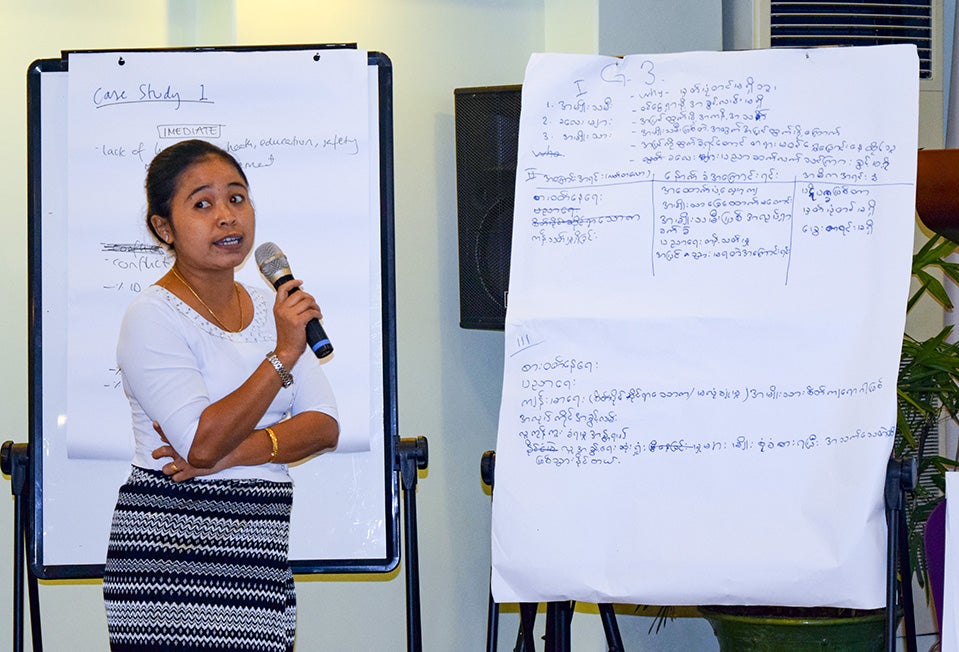
Jelvas Musau, Senior Regional Statelessness Officer at UNHCR, urged Myanmar to learn from successes achieved in Indonesia and Malaysia in gender equality and citizenship rights by mobilizing the women’s movements to jointly press the government and parliament to reform the laws.
Pansy Tun Thein, a Technical Adviser for the Gender Equality Network, said that until the Yangon workshop, the protracted armed conflict between the government and ethnic-based rebels had made it difficult for women of different ethnic groups in Myanmar to gather and jointly advocate for citizenship rights.